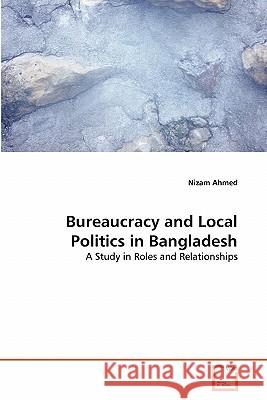Bureaucracy and Local Politics in Bangladesh » książka
Bureaucracy and Local Politics in Bangladesh
ISBN-13: 9783639300666 / Angielski / Miękka / 2010 / 184 str.
This book is a study of the roles and relations of politicians and bureaucrats in the policy process of the upazila parishad (UZP) in Bangladesh in its formative phase. The analysis is directed at examining the ways the two perceived each others roles and defined inter-role relationships in the policy process. The study reveals that the political and bureaucratic roles in the UZP did not remain mutually exclusive; rather one reinforced the other in a number of ways. Such reinforcement was governed more by mutuality of interests of the two sets of actors than by psychological affinities or ideological similarities. To attain their personal and organisational objectives, both politicians and bureaucrats were continually engaged in exchanging support and resources. Nothing appeared to be beyond the formal scope of exchange, not even rules. Hence, the inter-role relationship was characterised by reciprocity and interdependence. But such exchange, besides encouraging deviant behaviour and suppressing conflict, was fraught with the risk of giving rise to inertia and conservatism in the policy process. It also discouraged the growth of policy entrepreneurship in the UZP.











